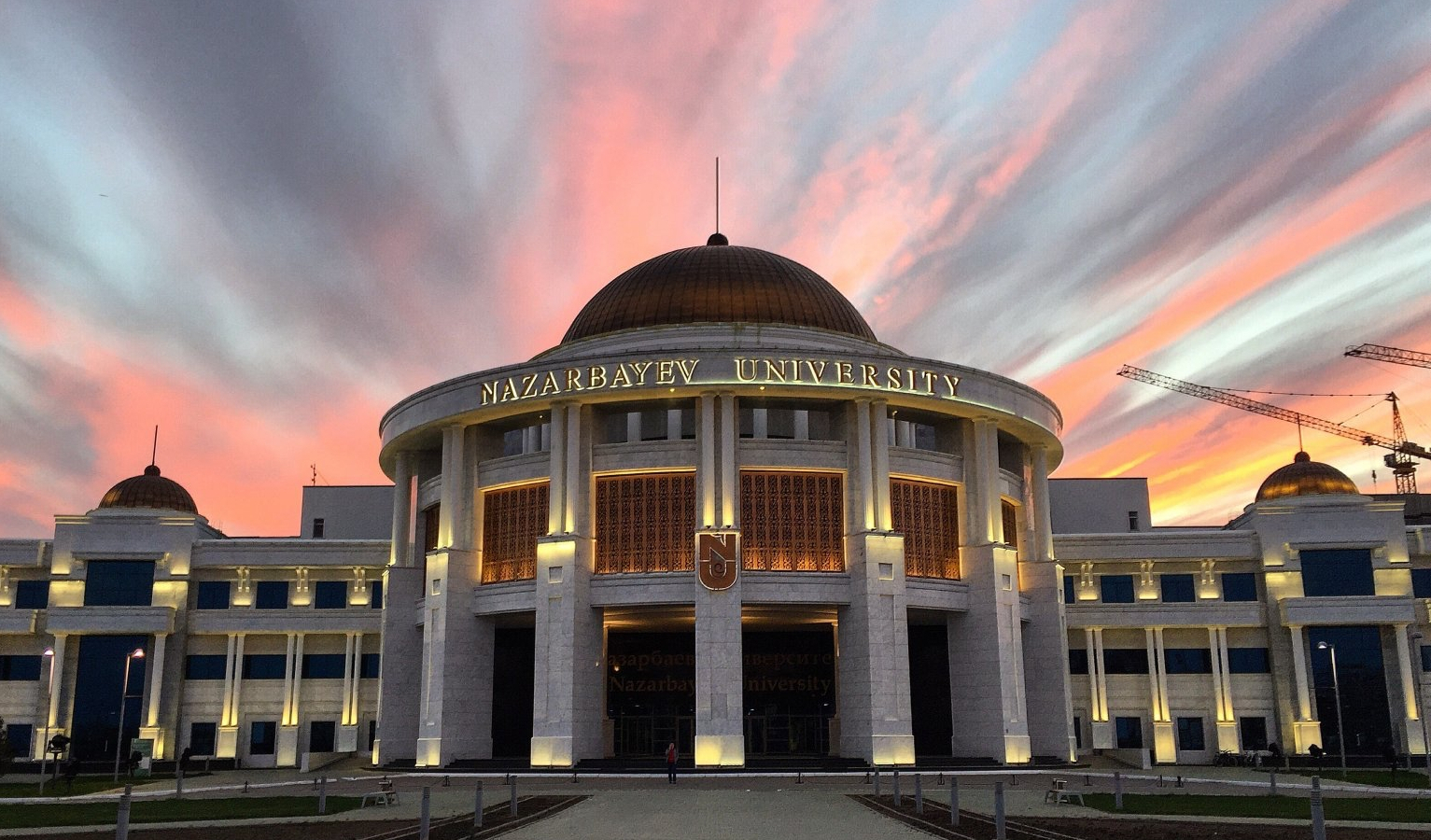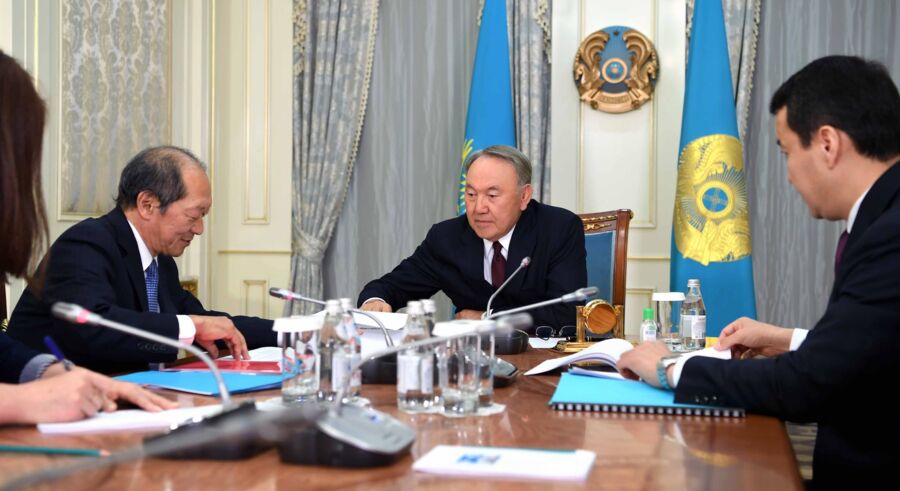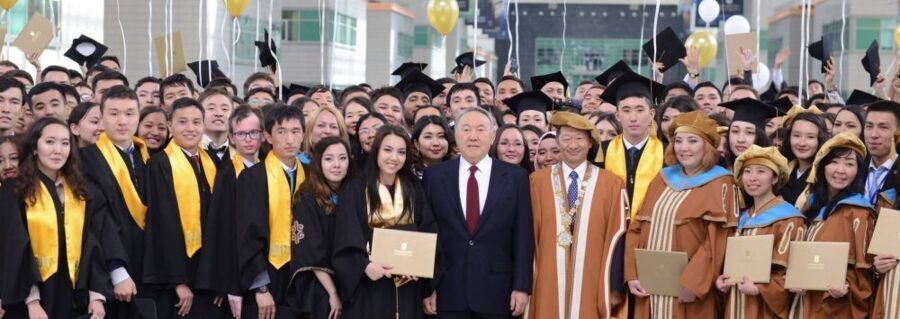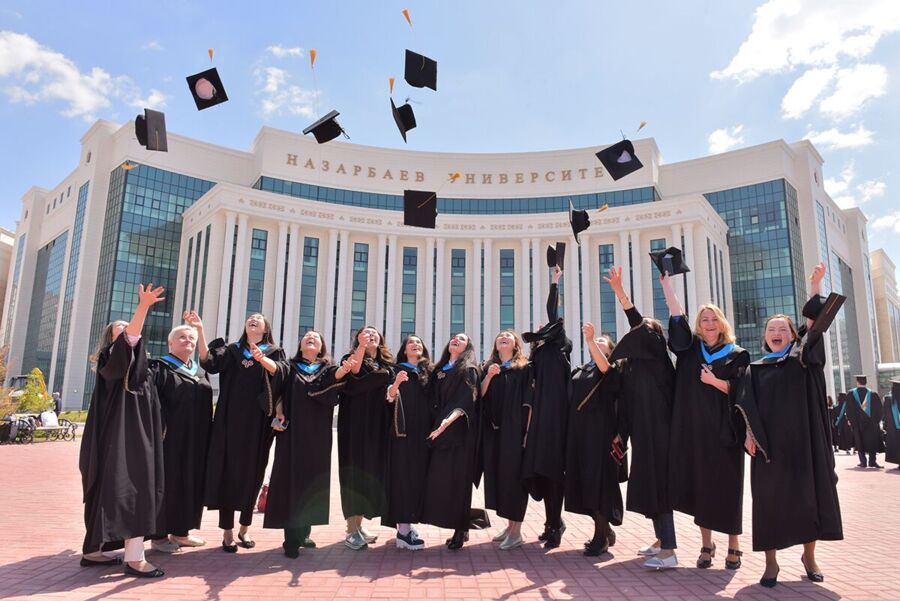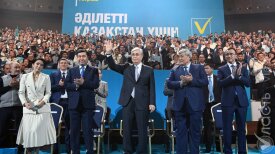On 22 February 2024, an article by former Nazarbayev University (NU) President Shigeo Katsu, “Defenders of liberal values should call out the sabotage of Nazarbayev University” was published. Its contents were prompted by a change in the leadership of the university, against the backdrop of rising questions about its special status and opacity, which were spotlighted in the media after the events of Qandy Qantar [Kazakh for ‘Bloody January’, the violent repression of urban protests in 2022 - ed.].
Читайте этот материал на русском.
Katsu had already expressed concern for the future of NU in connection with the arrival of Kazakhstani managers close to the government, as well as the intention to reduce funding for the university.
“Now, the university is being picked apart at the seams and could soon collapse in on itself. […] At the same time, the university has come under government-aligned figures at senior university level,” he wrote.
But in the recent past, the participation of high-ranking officials in the management of the university suited Katsu, who did not express doubts about this. For example, Karim Massimov, a former prime minister [and head of the National Security Committee until 2022 - ed.], and Yerbol Orynbayev, a former deputy prime minister, served on NU’s senior board of trustees.
During the reign of Nursultan Nazarbayev, senior officials always provided patronage to the foreign management of NU and provided freedom in resolving financial, academic, and personnel issues.
In addition, proximity to the former president’s political circle also provided Katsu and foreign management with immunity from financial audits by authorized government agencies.
Katsu now continues to work as an adviser to the president of NU and serves as a member of the university’s board of trustees.
However, many questions can indeed be addressed to NU. The public still does not have a clear picture of where the multibillion-dollar government funding the university receives goes, or of what is happening within the walls of the university and why this prompted Katsu to call on foreign universities to condemn the “sabotage” of NU.
Based on my personal experience at NU, I will try to answer these questions. And at the same time, I will dispel three myths that Katsu argued as facts.
Myth 1: NU will not be able to develop without foreign partner universities
In his article, Katsu notes the importance of the contribution of foreign partner universities to the development of NU, expressing concern about the future of these relations. Today, NU has ten such strategic partners.
Quote from Katsu's article: “Each academic department, or School, partnered with an international institution. […] They helped us attract international faculty members, helped us develop the syllabus, advised on the facilities we needed and much else besides.”
At the initial stage, the idea behind these developments was rational. Well-known world universities provided legitimacy to the young university, recognizing it as a partner in exchange for generous compensation.
Over the past 13 years, NU has significantly strengthened its teaching capacity, including due to the influx of graduates of the international Bolashak program and scientists from all over the world. Today, the curricula of all schools have been tested, and regular training has been conducted for teachers. Several Schools have received international accreditation.
The mission given to the strategic partner universities has been completed, and the need for continued expensive cooperation has long ceased.
At the same time, foreign management under the leadership of Katsu continued to renew contracts with foreign partners without any independent audit or evaluation, irrationally using budget resources.
Contracts with foreign partners are concluded through an opaque mechanism that lacks accountability. Information about the amount of funding for the implementation of strategic partnership agreements is hidden behind seven seals.
Let me give an example of the Graduate School of Public Policy (GSPP), where I worked from August 2013 to August 2021.
Since 2012, the GSPP has partnered with the Lee Kuan Yew School of Public Policy of the National University of Singapore. In 2015, after the departure of the first dean of the GSPP, Neil Collins, the Singaporean side seconded its vice-dean Weng Tat Hui to the position of interim dean of the GSPP with the consent of Katsu.
To this day, the university has not announced a call to fill the position of dean [to replace the interim dean - ed.].
Through Katsu’s patronage, there has been an open conflict of interest at NU for eight years because the dean of the GSPP participates in the decision-making to allocate funding for a partner university where he is also an associate professor. Proposals from employees to revise the terms of the contract and change the partner university were immediately suppressed by the dean and taken personally.
Such ineffective use of budget funds could have happened at other NU Schools.
By now, NU has become a “sacred cow” for foreign partner universities. Instead, following the best international practice, NU should build partnerships with foreign universities not on the basis of cosmic payments for their consulting services, but in the spirit of cooperation between scientists for joint research, grants, and student exchange within the framework of the Bologna process.
Myth 2: Foreign management of NU is more efficient and transparent compared to Kazakhstan’s management
When NU received financial privileges, Kazakhstan’s government expected that the university would eventually become self-financing. It was assumed that it would attract students not only from Kazakhstan, but also from other countries in the region, charging tuition fees and providing a wide range of educational and research services towards the organization’s income.
In the West, universities abide by the principle of self-financing with minimal support from the state budget. For example, British universities depend on an influx of international students because high tuition fees cover staff salaries, support research, and develop university infrastructure.
In his article, Katsu wrote that NU sought to develop financial autonomy from the state budget: “As part of the wider strategy, when we first started, we pursued innovative alternative funding models.”
After 13 years, NU remains 100% dependent on the state budget. The “alternative funding models” that Katsu wrote about failed to materialize.
Until 2023, NU received funding of about 60 billion tenge ($133 million) per year, or one-third of the entire state budget for higher education in the country. More than 95% of students receive a state grant. Out of 7,000 students, only 3% are foreign students who study on a grant.
This means that in 13 years NU has not entered the educational market, always relying on government handouts. NU does not compete with other local universities to attract students who are willing to pay for their education.
This has led to NU’s separation from the reality of Kazakhstan. With foreign management living in a “bubble of vanity”, creating the illusion of success and superiority over other universities. For example, every year about 100 students study in master's and doctoral programs at the GSPP. Almost all of them receive government grants. Tuition for one student at NU since 2011 has fluctuated between 4-9 million tenge depending on the program ($9-20 thousand).
In such comfortable conditions, the GSPP, like other NU Schools, do not have the motivation to fight to attract students and generate income.
When recruiting personnel, the number of students is not taken into account to calculate labor resources. At the GSPP, for 100 students, there is a team of 13 full-time academic staff , 5 visiting professors and 10 administrative employees. The school's leadership includes a dean, two vice deans, an executive director, and a general manager.
The teaching load is extremely low: two to three courses per year for classes of 7 to 20 students. For a low teaching load, the scientific activity of the School is also extremely low. At the same time, the salaries of NU academic staff can be 8-10 times higher than the salaries of teaching staff at other universities. The same goes for management.
The School’s socially significant contribution to the development of public policy in Kazakhstan is minimal. The GSPP does not prepare analytical notes for the government; it does not provide consultations to authorized government agencies on public administration reforms; it does not exchange experience with other local universities.
For example, British universities are not only involved in research and teaching activities. They must fare well in terms of “Research Impact”. This means that Schools of Public Policy in the UK must make “a demonstrable contribution of excellent research to the development of society and the economy” through partnerships with central and local government agencies and non-governmental organizations, providing them with analytical and methodological support.
Until recently, salaries for Kazakhstani academics [at NU - ed.] were two or three times smaller compared to foreign colleagues, which essentially led to a discrimination based on citizenship. Information about salaries at NU is classified and unavailable even to fellow university employees. On the contrary, UK universities openly publish salary grids on their websites.
In addition to high salaries, foreign teachers receive a generous benefits package: Paid airfare to their home country twice a year for the employee and all family members; payment for children's education (around $5,000 per year, per child); expensive health insurance; free accommodation in elite housing of the capital and university campus.
Why should foreign teachers, who receive astronomical salaries, not pay their personal expenses (rent, children’s education, or airfare home)? Why is the state budget covering the expensive rent of apartments for foreign management of NU in the Highville residential complex, when apartment buildings and a townhouse community have long been built on the campus?
Gala banquets and graduation parties in the best places in the capital are also paid for by the state budget. The luxurious, exciting life of foreign management and foreign personnel occurs at the expense of Kazakhstani taxpayers against the backdrop of socio-economic tension in the country.
A multi-level structure of the management team, a huge number of administrative staff, an inflated staff without reference to the number of students, generous favoritisms for foreign employees, the lack of alternative sources of funding, the “wasting” people’s money - all these are the results of the activities of the so-called “effective and transparent” foreign management of NU .
Myth 3: Foreign management carries liberal values, while Kazakhstani management carries the “Soviet” management style
In his article, Katsu criticizes NU's Kazakhstani leadership for "intentional sabotage" of the university in favor of a "traditional Soviet style" of management, noting the importance of preserving the liberal values that foreign management brings. Liberal values include academic freedom, freedom of expression, equality, and fairness.
Despite Katsu's assertions of liberal values, the university still bears the toxic name of the autocrat [and former President Nursultan] Nazarbayev, which puzzles my British colleagues.
The unequal treatment of foreign and local personnel is an established norm of behavior of NU’s foreign management.
This applies to personnel selection, career advancement, remuneration, and employment contracts. When conducting a competitive selection under equal conditions between candidates (level of education, teaching experience, availability of scientific articles), preference is often “behind the scenes” given to a foreign candidate.
Foreign teachers move up the career ladder much easier and faster compared to their Kazakhstani colleagues. Gender stereotypes also persist, since almost all the deans of the Schools, with the exception of the Graduate School of Education, are foreign men.
When Kazakhstani scientists actively publish, receive grants, and compete with foreign colleagues, NU’s foreign management pursued a policy of “softly” squeezing out local personnel. Over the past three years, four Kazakhstani scientists had to leave the GSPP due to this policy.
One example is the dismissal of Dr. Maxat Kassen from the GSPP in 2022. Kassen is a Fulbright scholar (University of Illinois, USA), a winner of prestigious awards: Scopus (2018) and Web of Science (2020). Now he is a professor at Astana IT University.
At the same time, foreign colleagues who do not actively publish and receive complaints from students for the low quality of their teaching find support from the dean of the GSPP. He extends their contracts without taking into account their results.
Such a drain of qualified Kazakhstani personnel occurs throughout the university due to unfair and ineffective personnel policies. Disillusioned with the NU system, many Kazakhstani scientists go abroad (to the USA, Canada, UK, Qatar, Poland, etc.). The majority of these Kazakhstani scientists received an excellent education thanks to the Bolashak scholarship, which was also budget money.
There is an unspoken rule at NU: “Don't Rock the Boat!”. That is, sit quietly, don’t stick your head out with your opinion, don’t be active, and show loyalty to your management.
At the same time, NU does not abide by the principle of rotating the dean every three to four years, as British universities do. After completing their three-year period, the deans at a British university usually return to research and teaching.
Foreign management of NU, like the “two-faced god of Janus”, shows the clear face of a young ambitious university from the front. Its true nature is hidden behind, where personal financial interests dominate, rather than the interests of Kazakhstani society.
The time has come to break the stereotype that “foreign” means better than “local”. A young generation of Kazakhstani scientists has come of age and competes internationally.
Therefore, I propose to make the following changes:
- Reduce the irrational use of budget funds.
- Organize an independent audit and re-review contracts with foreign partner universities in favor of NU; ensure more active participation of NU in the Bologna process.
- To achieve NU’s entry into the educational market of Kazakhstan and the Eurasian region to attract students on a fee basis (along with government scholarships for talented students).
- Integrate all NU Schools with government agencies, NGOs, and businesses.
- Ensure the exchange of experience between all NU Schools with other universities to provide methodological and scientific support.
- Revise the personnel selection and career development policy based on merit (rather than on the basis of a passport). Research articles published in internationally recognized journals should be the main criterion for the renewal and termination of employment contracts.
- Actively invite Kazakhstani scientists from abroad.
- Learn from the experience of leading Western universities on the rotation of deans every 3-4 years.
Saltanat Janenova is a former lecturer at Nazarbayev University, now lecturer at the University of Bristol.
Поддержите журналистику, которой доверяют.
